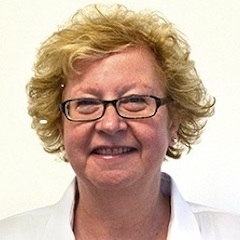
Why do patients who pay good money for a doctor’s advice ignore what the doctor has to say or lie to their physicians?
It’s a question Jack Chisum, Ph.D, a professor at Arizona State University, told FiercePracticeManagement that he often thinks about.
And at a time when primary care doctors are being asked to focus on preventive medicine, it’s a question physicians in your practice may also want to ask.
However, it’s a big task to get patients to change their behaviors. While most people want to be healthier, it’s hard to resist those fried clams and cheeseburgers, have a few cocktails on Saturday nights, or give up cigarettes after years of smoking.
.jpg?FKGcQ9xVNcals5LoE7aXEtk.PYa.onnY&itok=7LHVpAXr)
But Chisum is trying to change all that. As part of his work at the university’s Motivational Interviewing Laboratory, Chisum has been working with physicians to improve their communication with patients. His goal is to create more of a partnership and empower the patient to want to change.
Although he told me that he doesn’t like to use the word honest, he says patients are not always forthcoming with their doctors. Often fear holds patients back, he says, such as the worry that a diagnosis could mean their lives will be shortened.
Better communication comes from time and bonding between the patient and physician, he says. But doctors, more pressed for time than ever, have the tendency to believe it takes too much time to create that bond. However, research shows that within two minutes a patient will start to bond with a doctor. “I ask the doctors I work with, ‘do you have two minutes’?” he says.
Motivational interviewing, which psychiatrists and psychologists typically use, is a technique doctors can also adopt to encourage behavior change in patients. Doctors can start by asking open-ended questions, such as ‘tell me about your condition?’
“We get a whole story out of that,” he says.
With motivational interviewing, the decision to change behavior comes from the patient. Rather than advising patients to modify their behavior, the physician assesses the patients’ readiness to change and helps devise a plan for success.
Chisum is also using technology as a way to help physicians improve communication with patients. Chisum and Glenn Brown, a technology support analyst at the laboratory, are using a combination of facial recognition and layered voice analysis software to offer what they say is an astonishingly accurate read of a patient’s emotional response during a conversation.
The technology will allow a doctor to videotape a conversation with a patient. When analyzed at the university laboratory, the software can help a doctor determine whether a patient is hiding something. It may also be used to help a physician adjust their communication skills so patients never feel they have to cover up the fact they eat too much bacon or still haven’t kicked their smoking habit.
So, for instance, a doctor may ask patients a few questions about their ideal body weight and exercise habits. While they may appear outwardly neutral or even happy, the software tells the truth: they were reacting negatively. Armed with that information, the doctor could help patients to focus on those areas and work through those negative emotions.
“The technique is a portal, a pathway. We can teach the physician how to deal with the patient,” he says.
And if it works, perhaps patients will finally listen to their doctors.--Joanne (@PracticeMgt)